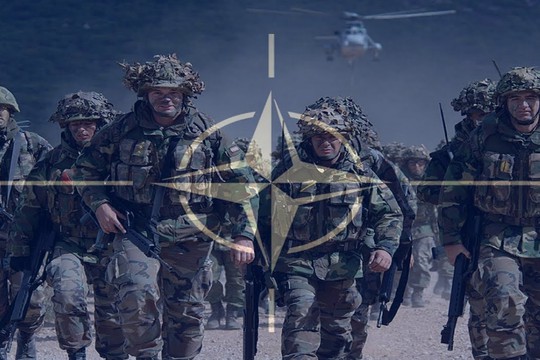Since the end of the Cold War, the North Atlantic Treaty Organisation has distinctly strayed from its original purpose. It has become, almost shamelessly, the vessel and handmaiden of US power, while its burgeoning expansion eastwards has done wonders to upend the applecart of stability, writes Binoy Kampmark, a Commonwealth Scholar at Selwyn College, Cambridge and RMIT University, Melbourne.
From that upending, the alliance started bungling. It engaged, without the authorisation of the UN Security Council, in a 78-day bombing campaign of Yugoslavia – at least what was left of it – ostensibly to protect the lives of Kosovar Albanians. Far from dampening the tinderbox, the Kosovo affair continues to be an explosion in the making.
Members of the alliance also expended material, money and personnel in Afghanistan over the course of two decades, propping up a deeply unpopular, corrupt regime in Kabul while failing to stifle the Taliban. As with previous imperial projects, the venture proved to be a catastrophic failure.
In 2011, NATO again was found wanting in its attack on the regime of Muammar Gaddafi. While it was intended to be an exemplar of the Responsibility to Protect Doctrine, the intervention served to eventually topple the doomed Colonel Gaddafi, precipitating the de-facto partitioning of Libya and endangering the very civilians the mission was meant to protect. A continent was thereby destabilised. The true beneficiaries proved to be the tapestry of warring rebel groups characterised by sectarian impulses and a voracious appetite for human rights abuses and war crimes.
The Ukraine War has been another crude lesson in the failings of the NATO project. The constant teasing and wooing of Kyiv as a potential future member never sat well with Moscow and while much can be made of the Russian invasion, no realistic assessment of the war’s origins can excise NATO from playing a deep, compromised role.
The alliance is also proving dissonant among its members. Not all are exactly jumping at the chance of admitting Ukraine. German diplomats have revealed that they will block any current moves to join the alliance. Even that old provoking power, the United States, is not entirely sure whether doors should be open to Kyiv.
On CNN, President Joe Biden expressed the view that he did not “think it’s ready for membership of NATO.” To qualify, Ukraine would have to meet a number of “qualifications” from “democratisation to a whole range of other issues.” While hardly proving very alert during the interview (at one point, he confused Ukraine with Russia) he did draw the logical conclusion that bringing Kyiv into an alliance of obligatory collective defence during current hostilities would automatically put NATO at war with Moscow.
With such a spotty, blood speckled record marked by stumbles and bungles, any suggestions of further engagement by the alliance in other areas of the globe should be treated with abundant wariness. The latest talk of further Asian engagement should also be greeted with a sense of dread. According to a July 7 statement, “The Indo-Pacific is important for the Alliance, given that developments in that region can directly affect Euro-Atlantic security. Moreover, NATO and its partners in the region share a common goal of working together to strengthen the rules-based international order.” With these views, conflict lurks.
In 2021, Macron made it clear that NATO’s increasingly obsessed approach with China as a dangerous belligerent entailed a confusion of goals. “NATO is a military organisation, the issue of our relationship with China isn’t just a military issue. NATO is an organisation that concerns the North Atlantic, China has little to do with the North Atlantic.”
Such views have also pleased former Australian Prime Minister Paul Keating, whose waspish ire has also been trained on the NATO Secretary-General. In his latest statement, Stoltenberg was condemned as “the supreme fool” of “the international stage”. “Stoltenberg by instinct and policy, is simply an accident on its way to happen”. In thinking that “China should be superintended by the West and strategically circumscribed”, the NATO official had overlooked the obvious point that the country “represents twenty percent of humanity and now possesses the largest economy in the world… and has no record for attacking other states, unlike the United States, whose bidding Stoltenberg is happy to do”.
In its post-Cold War visage, the alliance has undermined its own mission to foster stability, becoming Washington’s axe, spear and spade. Where NATO goes, war is most likely. Countries of the Indo-Pacific, take note, stresses Binoy Kampmark.
read more in our Telegram-channel https://t.me/The_International_Affairs

 10:37 17.07.2023 •
10:37 17.07.2023 •























